I have to admit that even now, some memories are very painful. The Arduous March that I experienced as a little kid is one of them.
Based on the North Korean standard, there are not many people suffering from malnutrition. Or, I should put it this way: the North Korean people do not have any standard when it comes to malnutrition. That’s because it is such a common condition, for in North Korea you cannot get any medical support, even medicine for a cold.
Doctors have left hospitals and started making a living on their own in the market. Of course, there’s no concept of “regular check-ups” in North Korea and so malnutrition is not even considered a medical condition. Only when you lose all energy and end up in a sickbed do you realise that you haven’t eaten well. In this situation, anyone who could walk was considered “normal”. My rough guess is that, based on global standard, more than half of North Koreans would be considered malnourished.
My sister
When I lived in North Korea I never thought I was suffering from malnutrition – even though I was not very healthy at the time. Perhaps that is because everyone was in a similar situation. And I was shadowed by my younger sister, who suffered from critical malnutrition, so my health was not a concern.
Only when you lose all energy and end up in a sickbed do you realise that you haven’t eaten well
My little sister went to kindergarten then, and she occasionally collapsed just while walking on the street. Then one day even her eyesight started deteriorating. She could not see anything at night. She could not even pick up her rice bowl. My mother could not do anything but shed tears looking at her, and my father did not know because, as always, he was always away (with the military) and busy with work.
My friends and I went out to hills and an open field nearby, and collected shepherd’s purse, an herb known in North Korea to be good for night blindness.
My kindhearted friends poured the shepherd’s purse they collected all day long, which could have made a decent dinner soup for their hungry families, into my basket. However, even the kindness of my friends could not save my little sister.
There was no progress in her condition, and my mother finally wrote a letter to my father who eventually managed to get pig’s liver and sent it to my mother. She steamed it and fed it to my sister with salt, and fortunately it worked. My sister gradually recovered her eyesight.
Children were the biggest victims
At a time when a kernel of corn seemed more valuable than gold, I think the biggest victims were the little kids in North Korea.
In my hometown, there was a little girl named Soon Yi. I often saw her drawing something with a broken branch on the ground, waiting for her dad, who was out to find something to feed her. Because she was four-years-old, the same age as my own little sister then, I was a bit attached to her. Then, one day, I woke up and heard the sad news that she had died. Her mother passed away when she was still a baby and her father was the only one who could find something to feed her. However, at that time, it was not easy to find food.
Because of the long-lasting famine, it was very competitive to find anything edible. When you went out to the mountains, plenty of people were already competing to dig out some edible herbs. Farmland was another battlefield to dig out the rice roots remaining in the soil.
You might wonder what they would want rice roots for. People dug out the rice roots that remained after reaping, and they ground them into powder and made porridge or maybe some noodles. Though not as good as the fruits, the roots still have some useful nutrients inside. Food made from rice root tasted so awful, though, that for the first time in my life, I realised that some food is tasteless even for starving people.
For the first time in my life, I realised that some food is tasteless even for starving people
The most popular substitute food in those days was rice bran cake, pine bark cake, wormwood cake and cake made with wine lees. Rice bran, which is called mi-gang in North Korea, is the powder produced in the process of polishing brown rice. My grandmother kneaded the powder and made us rice cake in a cauldron.
We waited for the rice cake to be cooked, and because there was not enough firewood, the flame was not strong enough the wait felt like a couple of decades. My little brother, who could not wait for the cauldron to finally boil, eventually he fell asleep before the cake was done.
Pine bark cake
Even in those hungry, painful days, there were some happy events we waited for.
The days we ate pine bark cake were like Christmas to us. If you remove the thick, tough outer layer of pine trees, there’s another layer before you get to the white flesh of the tree. There’s a thin brown film between the outer skin and the white core. People peel off that thin film and pound it into fine powder. Then they add a couple tablespoons of flour to make a cake. So, basically, it is a cake made with tree bark and it actually tasted quite decent.
However, it had one severe side effect: my little brother, the youngest, ate the cake and got constipation that was so bad that it caused him to burst into tears. Remembering my little brother sobbing loudly, now my heart aches again because he is still in North Korea. He was only four-years-old then, way too young to understand the hardships of life. Even at such a young age, he always thought of his family.
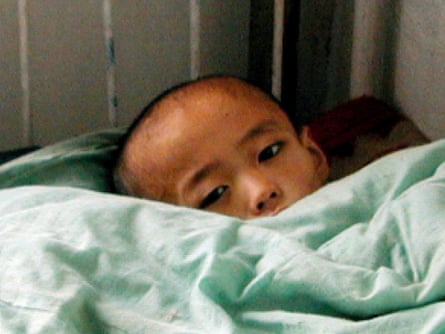
There’s a story behind this: my mother planted cucumbers in the back yard. However, perhaps because of the drought, the cucumber vine hardly produced even a single skinny cucumber. It took a long time for the cucumber to grow to the size of a middle finger. Because of the weather, all sorts of crops could not grow well then. My mum forbade us from eating the cucumber because, she said, we all should share it. I was tempted to pick the cucumber and eat it more than a dozen times a day, but I was strong enough to resist to the urge. However, one day, I was surprised to see just part of the cucumber dangling on the vine, the rest of it bitten off.
In the spot where it had been bitten, some fresh juice had oozed out, meaning it had not been long since it was eaten. My mum was furious, and demanded from all three of us who had done it. Finally, my brother stepped out, hesitatingly. He confessed that he ate it. He said he really wanted to eat all of it but stopped himself after only one bite because he wanted to share it with his sisters when the cucumber grew big enough.
Would a partially bitten-off cucumber grow well? Everyone knows that it would wither away, shrink and eventually fall from the vine. Of course, my little brother was way too young to understand this. My mother, out of patience, spanked him, but regretted it later. She later said that she was angry because she could not fill the tiny stomachs of her little ones.
My mother said that she was angry because she could not fill the tiny stomachs of her little ones
I sometimes wonder how I could live in such a world. However, I then remember that others were in even worse situations.
None of our family died of hunger. My father’s social status as a military officer was of no help, but we three children survived all this with our sick mother. I was the eldest, and I wanted to find anything to feed my little sister and brother, even little pieces of herbs. I sometimes went out wandering around hills and fields nearby with some of the old ladies in the village. As a nine-year-old girl, there was no herb that I didn’t know. I can still recognise all the herbs on the mountain. Fern, bracken fiddlehead, bonnet bellflower, Solomon’s seal, mountain wormwood, victory onion, clavaria, naematoloma… all of these now have become a memory of those times.
Coming to South Korea
Now I could say I am in a good shape. But when I left North Korea I was very weak. My mum visited me when I was receiving social adjustment training right after I arrived South Korea, and when she saw me, she could not hold back her sobbing.
She later told me she could not believe her eyes when she saw me (she had left for South Korea before me). I had not grown at all since she last saw me, and, of course, I had become bony. My face was white, covered with age spots and my hair had become rough and brittle. I looked shabby. She was not completely sure it was her own daughter in front of her. She said she had to hesitate for a second but, even at that moment, she could recognise me by my shining eyes which, as all our neighbours once said, looked exactly like hers.
Back then I suffered from severe vertigo. When I felt dizzy, I had to sit down for a while. Now while writing this, I realised my vertigo has been gone for a while but I don’t remember since when. Anyway, right now, I am healthy without any medical concerns.
Now I only wish health and wellness for my friends and family still in North Korea. When would could I see them again?
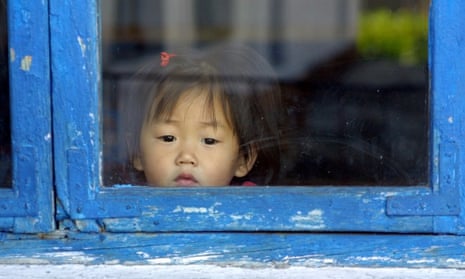

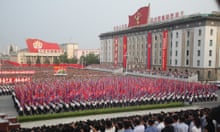
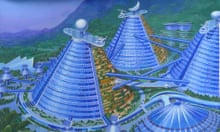

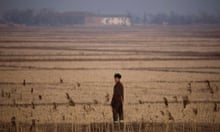
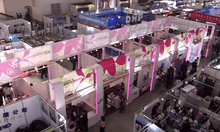
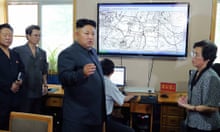
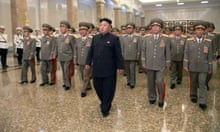

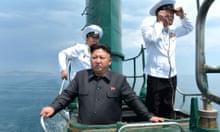
Comments (…)
Sign in or create your Guardian account to join the discussion